Get useful information regarding students activities and likes
Get useful information regarding students activities and likes

A new Goat and Sheep Shed was opened at the Catanduanes State University (CatSU) farm on June 26, marking a concrete step forward in livestock education and local food production. The project, led by the College of Agriculture and Fisheries (CAF), aims to serve both as a livestock shelter and a practical learning facility for agriculture students. CAF Dean Dr. Michael Owen P. Malijan said the shed was built through the combined efforts of faculty, farm staff, and workers. He highlighted its dual function—improving animal housing while giving students hands-on training in livestock management. “This is a product of teamwork. It shows what we can achieve when we work with a clear goal,” Malijan said during the ribbon-cutting. Dr. Ma. Shiela Gregorio, Dean of the College of Education, called the farmworkers the “unsung heroes” behind the project and praised their role in campus-wide development. A message of support from governor-elect Dr. Patrick Alain T. Azanza, delivered by Ms. Aileen Llandelar, affirmed continued backing for CAF projects. Llandelar also announced that the university has been officially recognized as a Learning Site for Agriculture by the Department of Agriculture–Agricultural Training Institute (DA-ATI). This comes with a grant for additional livestock and agri-based initiatives aimed at expanding local food systems. Mr. Eddie Millon, representing the CAF faculty and staff, closed the event by thanking all stakeholders and emphasizing the importance of cross-college cooperation in developing sustainable agriculture programs. The shed is expected to enhance the university’s livestock research and training capacity, while also contributing to broader provincial food security goals.

Flexible learning just got a major upgrade. Twenty-one graduate school faculty members have successfully completed a rigorous three-day echo training on Course Design for Open and Distance e-Learning (CD4ODeL), positioning the university to deliver smarter, more accessible instruction for graduate students. Held from June 9 to 11, 2025 at Twin Rock in Igang, Virac, the training was more than just an academic workshop—it was a blueprint for how graduate education can evolve to meet the demands of modern learners. “This is how we transform our modules,” said Dr. Gemma G. Acedo, Vice President for Academic Affairs, during her keynote address. “Our faculty and academic leaders are not just participating—they are leading the shift toward improved, future-ready instruction.” The training was initiated by the Graduate School, led by Dean Arthur I. Tabirara, in partnership with the Open University headed by Dr. Medie M. Lopez. It served as the university’s echo of the national CD4ODeL program facilitated earlier this year by the University of the Philippines Open University (UPOU). Before the training kicked off, the Research Committee conducted a university-wide survey to gauge the learning preferences of graduate students and faculty. The results, presented by Dr. Jose Tria, showed that over 50% preferred a blended learning setup—insight that directly shaped the course design and workshop outcomes. Throughout the workshop, participants engaged in five targeted sessions, all facilitated by university faculty members: Dr. Medie M. Lopez on digital learning frameworks and horizontal syllabus development Asst. Prof. Romeleen S. Go-Vela on crafting course and study guides Instructor Ferdinand M. Brizo on curating online resources Assoc. Prof. Moreno D. Tabios, Jr. on designing interactive learning activities Dr. Rosana S. Abundo on strategies for online assessment Faculty members were required to produce complete sets of course design outputs—aligned with outcome-based education and online pedagogy—which were reviewed during the program’s closing. Beyond technical skills, the training also signaled the university’s serious commitment to educational innovation. By investing in its own faculty, the institution is laying the groundwork for a more inclusive and adaptive academic environment—particularly crucial in island provinces where flexibility in education can bridge real-world access gaps.

“Let’s talk about trust.” That was the pointed opening of Catanduanes State University OIC President Dr. Roberto B. Barba Jr., who served as Guest of Honor and Speaker during the 30th Police Community Relations (PCR) Month Kickoff Ceremony held July 1 at Camp Francisco Camacho in Virac. Speaking before members of the Catanduanes Police Provincial Office, community leaders, and guests, Dr. Barba wasted no time cutting to the core of this year’s theme—“Sa Bagong Pilipinas, Ang Gusto ng Pulis, Ligtas Ka!”—by framing safety not just as a police duty, but as a shared civic pact. “It’s not just about patrol cars or arrest reports,” he said. “It’s about what happens when law enforcement and the public meet—not in confrontation, but in cooperation.” Context is the Catalyst Barba underscored the uniqueness of island life in Catanduanes, where communities are tightly knit, and both good deeds and missteps are amplified. “In a place like this,” he said, “safety means more than low crime numbers. It’s seeing your kid ride a bike down the barangay road without you panicking. It’s the cop who fixes the sound system during the barangay fiesta.” Citing Data, Pushing Dialogue Backed by recent statistics, Barba noted that crime in Catanduanes declined slightly in 2024—from 381 to 372 reported cases. Rape dropped by 32%, and robbery by 52%. While theft and motorcycle carnapping saw a minor uptick, the quick response of local police and barangay units kept them in check. “These aren’t just numbers,” he emphasized. “They’re stories of families not broken, lives not lost—and communities choosing vigilance over violence.” But Barba said the real challenge lies in restoring public trust, which, unlike crime stats, can’t be easily measured. “You might not remember the crime rate, but you’ll remember how the police treated your cousin. Or whether they walked a student home after dark.” From Enforcement to Engagement He reminded the audience that building a “Bagong Pilipinas” isn’t just about reforming institutions—it’s about reimagining relationships. “Policing is a thankless job. When it’s done right, no one notices. When there’s one mistake, no one forgets,” he said. “That’s why community relations matter. Because safety isn’t just enforced—it’s co-created.” Barba called on all sectors to play a role—from educators teaching civic responsibility, to parents modeling respect for the law, to vendors and drivers who often notice things first. “You are the first line of intelligence,” he told the crowd. Calling Out Reality, Not Just Rhetoric Acknowledging ongoing concerns about abuse, rogue elements, and public hesitation, Barba called for “real-time accountability, not just real-time policing.” “Let’s not solve these issues by standing on opposite ends, shouting,” he said. “Let’s sit down—over coffee, during feeding programs, town halls—and ask: ‘Ano bang tunay na nangyayari? Paano tayo tutulong?’” Higher Education’s Role As head of the island’s lone state university, Barba took pride in CatSU’s graduates—many of whom now serve in the PNP and justice sector—even though the university doesn’t offer Criminology. “We produce graduates who don’t just know the law—but who live it, with compassion, intelligence, and integrity.” He also pledged continued university support for initiatives that bridge campuses with community peace-building efforts. A Closing Challenge Ending his message with a challenge to both police and public, Barba asked: “Can we build peace not just through presence, but through partnership?” And with that, he redefined the day’s celebration—not just as a ceremonial kickoff, but as a shared commitment to safety, trust, and the work of building a country where both the public and the police want the same thing: a safe, dignified life for every Filipino.

The Department of Agriculture – Regional Field Office 5 (DA-RFO 5), through its validation team led by Regional Livestock and Poultry Program Coordinator Marianito A. Tesorero, conducted a site validation on June 18, 2025, at Catanduanes State University (CatSU) Main Campus for the proposed Livestock Economic Enterprise Development (LEED) Project. The team was formally welcomed by CatSU Officer-in-Charge Dr. Roberto B. Barba. The delegation included Maria Gracia E. Postigo, Farm Supervisor and APCO-Albay Technical Staff; Herbal De Leon, Farm Supervisor; and staff from the Regional Agricultural Engineering Division. After the inspection, Mr. Tesorero issued a summary of recommendations endorsing CatSU for the LEED Project, which covers livestock initiatives such as goat, honeybee, and layer chicken production, along with support for essential equipment including feed mills, incubators, and pelletizers. The endorsement was confirmed and signed by CatSU Farm Manager Eddie S. Millon, with support from Dr. John Joseph M. Camu, University Veterinarian; Aileen S. Llandelar, Project Coordinator; Planning Officer III Ar. Mae Lizza D. Bublo; and other university personnel who assisted during the visit. The team conducted a comprehensive inspection of the university’s livestock and poultry facilities. Another validation is scheduled at CatSU Panganiban Campus on June 19 to assess the proposed site for the swine production package under the LEED program.

“You are more than your medals. You are hope made visible,” said Catanduanes State University (CatSU) Officer-in-Charge Dr. Roberto B. Barba, Jr. during the 2025 Parangal sa mga Natatanging Mag-aaral held on June 10 at the CatSU Auditorium. Addressing the university’s top-performing students, Dr. Barba emphasized that being outstanding goes beyond awards. “It’s about quiet consistency,” he said, urging the awardees to remain grounded in their values and purpose. He shared practical advice: “Success doesn’t always look like a gold medal. Take real breaks. Learn to really listen. Let kindness outlast competition. Serve, not just succeed.” Dr. Barba underscored CatSU’s deeper mission for its students: “Our vision for you goes beyond diplomas and awards. We want you to be change-makers, bridge-builders, listeners, and leaders.” The event also welcomed Virac Councilor-Elect Hon. Angelo Piolo Laynes as guest of honor, alongside Vice President for Academic Affairs Dr. Gemma G. Acedo and Registrar III Ms. Salvacion Murillo. In his message, Councilor-elect Laynes reminded students of the importance of character in their pursuits: “Kaalaman ang magdadala sa atin sa rurok ng tagumpay, pero integridad ang magtitiyak na mananatili tayong totoo sa ating pinanggalingan at layunin.” He concluded by sharing three guiding principles that shaped his own journey: “Stay grounded. Serve with heart. Embrace your failures. Every failure is a lesson, a redirection—sometimes even a protection.” Organized by the Office of Student Affairs and Development Services (OSADS), the event recognized graduating and non-graduating athletes with regional and national wins, members of the Center for Culture and Arts – Hablon Dawani, academic honorees including President’s Listers for AY 2023–2024 and 2024–2025, and winners in academic and non-academic fields. Kent Richmond D. Antonio from the College of Health Sciences was named this year’s Outstanding Student Leader, chosen from 22 nominees.

Despite heavy rains, Catanduanes State University (CatSU) successfully underwent evaluation on June 11, 2025, by the Department of Agriculture–Agricultural Training Institute (DA-ATI) Region V as it vies to become the second state university in the Bicol Region and the seventh Learning Site for Agriculture (LSA) in the province. The DA-ATI LSA validation team, composed of Training Specialist I and LSA focal person Alexander O. Vargas, Planning Officer II Nida H. Garcia, and technical staff, conducted the assessment to verify the university's compliance with LSA standards and guidelines. CatSU Officer-in-Charge Dr. Roberto B. Barba, Jr. and designated Farm Manager Eddie Millon welcomed the evaluators and highlighted the university’s readiness, citing its extensive agricultural land, diverse crops and livestock, advanced machinery, and expanding training facilities. The team inspected key areas including the College of Agriculture and Fisheries building with its poultry section, the Extension Building with its training hall, the solar farm, and CatSU’s main farm featuring crops like bitter gourd, eggplant, and pineapple. The DA-ATI team provided feedback and will endorse CatSU’s application to the ATI Central Office. Upon approval, CatSU will be formally certified and a Memorandum of Agreement ceremony will be held. LSAs are part of ATI’s initiative to promote practical, hands-on agricultural education by partnering with institutions and successful farms to demonstrate replicable farming technologies and practices.

Dr. Jimmy T. Masagca, Professor VI at the Catanduanes State University College of Agriculture, was among the world scientists who gathered at the One Ocean Science (OOS) Congress held from June 3 to 6 in Nice, France. The congress, organized as a special event of the Third UN Ocean Conference (UNOC3), tackled urgent global concerns including the collapse of marine biodiversity, unsustainable fisheries, and the need for stronger science-based action in ocean governance. Masagca, a member of the IUCN Climate Crisis Commission and DA-BFAR’s Scientific Advisory Group, was one of only three Filipino scientists selected by the French Embassy and the French National Centre for Scientific Research (CNRS) to participate in the high-level event. The other delegates were Dr. Cha Amedo Repollo, Deputy Director of the UP Marine Science Institute, and Dr. Connie Ponce, a chemist from UP Visayas. “I am honored to be a Philippine delegate to the UN Ocean Conference Special Event – One Ocean Congress in Nice, France,” Masagca posted on Facebook. “Thank you to the French Embassy and CNRS for selecting me.” The CatSU professor attended sessions on the IUCN Green List for Protected and Conserved Areas, the impacts of non-selective fisheries, the BBNJ (Biodiversity Beyond National Jurisdiction) Agreement and the Great Blue Wall, and the role of science in supporting BBNJ implementation. “Thank you, French Embassy, for sponsoring my travel to Nice, France,” he added. “The benefits are so immense. I have met and expanded connectivity for collaboration—on coastal restoration.” Masagca also leads the CatSU–Bicol University–Aklan State University Tri-University Consortium, which focuses on coastal and marine research in island regions.

This year’s Premio Etasor 2.0, a local poetry tilt in Bikol-Catandunganon, drew 25 entries — many penned by young, first-time poets finding voice in their mother tongue. Held at the CatSU Accreditation Room on May 26, the event doubled as an awarding ceremony and book launch, with students and emerging writers sharing space with literary veterans. The contest, now in its second year, honors the legacy of Efren “Etasor” Sorra, a homegrown poet and artist known for championing local language and culture. The tilt is open to all Catandunganons — students, professionals, freelancers, and even those based outside the island. Entries this year came from fresh voices, writing about field work, faith, folk beliefs, longing, and the island’s shifting landscape. Literary journal Tagama (Isyu 1), published by Aklat Ulagad launched its new issue, Kalabira, an anthology of Premio Etasor 2024 winners and select submissions. Each attendee received a copy of Tagama. Winners received books from Aklat Ulagad, along with cash prizes: ₱5,000 for first, ₱3,000 for second, and ₱2,000 for third. Honorable mentions also brought home books from Aklat Ulagad. Karyl Tugay, a CatSU BSED English major, topped the contest with her suite Tunton Balagon, Siram, and Parauma. Fausto Sarmiento and Ian Victor Antonio placed second and third, respectively., while Joshua Marino and Jane Bermejo earned honorable mention. Judges included poet-critic Dr. Alan C. Popa, ESCOM Director Reashiela L. Khan, and national award-winning author Napoleon I. Arcilla III, who also happens to clinch the top spot in last year's Premio. CatSU OIC President Dr. Roberto B. Barba Jr. also took part — throwing in a message of support and reading his own poem during the program. A Certificate of Appreciation was also awarded to Governor-elect Dr. Patrick Alain T. Azanza, former CatSU president and event sponsor. Premio Etasor 2.0 is organized by the Catanduanes State University Sentro ng Wika at Kulturang Filipino, headed by Dr. Jovert R. Balunsay, in partnership with Aklat Ulagad.

Catanduanes State University (CatSU) achieved a milestone by securing 2nd runner-up in the 2025 Institute of Computer Engineers of the Philippines (ICpEP) National CPE Challenge Quiz Bowl—the university’s first-ever national placement since it joined in 2018. Held on May 9, 2025, at the National University Fairview Campus in Quezon City, the event featured top teams from 15 regions. CatSU’s team, composed of Computer Engineering students Mae Carla M. Reyes and Jouse T. Martinez (both 4th year), and Gian Ray G. Sarmiento (3rd year), tied for first place in the main round with 54 out of 60 points alongside Notre Dame of Dadiangas University (NDDU, Region 12) and the University of San Jose–Recoletos (USJ-R, Region 7). A clincher round determined the final rankings. Although all three teams answered correctly, USJ-R was the first to raise its answer board and was declared champion, followed by NDDU (1st runner-up) and CatSU (2nd runner-up). Under the mentorship of Engr. Morris U. Aquino, the students credited their performance to thorough preparation, noting that nearly half of the questions—covering computer engineering concepts, programming, and data structures—had been encountered during online reviews and lectures. “We hope our achievement inspires future Computer Engineering students to aim for national recognition in the ICpEP quiz bowl,” the team shared. “Preparation and teamwork are key—once you compete, every answer becomes a team answer.” On May 26, the team presented their plaque of recognition during a courtesy visit to Dr. Gemma G. Acedo, CatSU Vice President for Academic Affairs. The team earned its spot to represent the Bicol Region after winning the regional round, coached by Engr. Donita Mae Teano, where they outperformed six other schools last January 2025.

“You are not the end product of ROTC—you are the starting point of something bigger.” Catanduanes State University (CatSU) OIC President Dr. Roberto B. Barba Jr. struck both challenge and clarity as he addressed 346 graduates of the Basic ROTC program during the ROTC Graduation and Turnover of Command Ceremony held May 26, with 30 first class cadets and 20 end class cadets completing their final leg of training. With MAJ Renato T. Gianan (INF) PA as the guest of honor, the ceremony marked not just a turnover of saber and command but also of civic duty—one that Barba stressed must live beyond the parade ground. “Let’s get real. Maraming sumali sa ROTC hindi agad dahil sa tapang,” he said. “Minsan, dahil required. Minsan, dahil barkada. O minsan… kasi hindi kasya sa schedule ang NSTP Literacy Training.” But Barba said what began as compliance has now become a symbol of commitment. “You started with a requirement, and now you're graduating with a responsibility,” he declared. The event, held at the university auditorium, also witnessed the symbolic Saber Turnover and Ceremonial Entry of New Reservists, traditions that signify continuity and readiness to serve. Barba reminded the cadets that real life offers no formations, and no drills—just moments that test one's values when no one is watching. “In life, there’s no ‘ready front, march!’ before you enter a job. Walang ‘at ease’ kapag nasasaktan. But the mindset? You’ve built it here,” he said. He framed ROTC as one of the few programs in the country that doesn’t just train young people to salute—but to serve. “ROTC ang isa sa kakaunti kung saan tinuturuan hindi lang sumunod, kundi manindigan. Hindi lang mag-martsa, kundi magmahal sa bayan.” With nearly 14 million Filipinos aged 15 to 24, Barba posed a challenge: how many are trained to lead, to obey when it’s inconvenient, and to step up under pressure? “The saber isn’t passed because someone is strong. It’s passed because someone is willing.” He called on cadets to carry their training beyond ROTC—into homes, workplaces, and communities. “Serve harder. Lead humbler. You are a seed of the next leadership generation. Sana hindi kayo tumubo sa lupa ng yabang o takot, kundi sa lupa ng paglilingkod.”

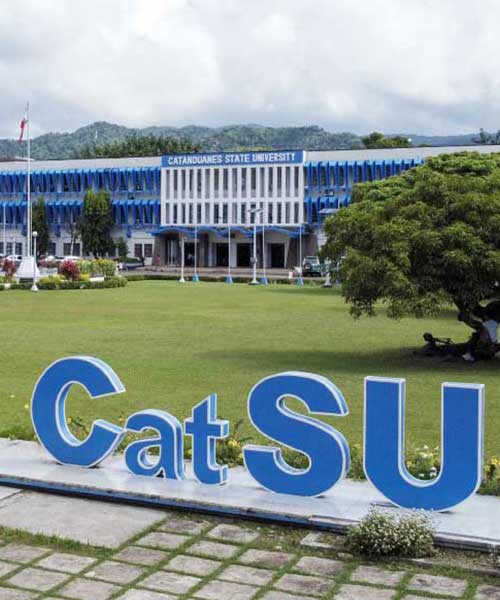
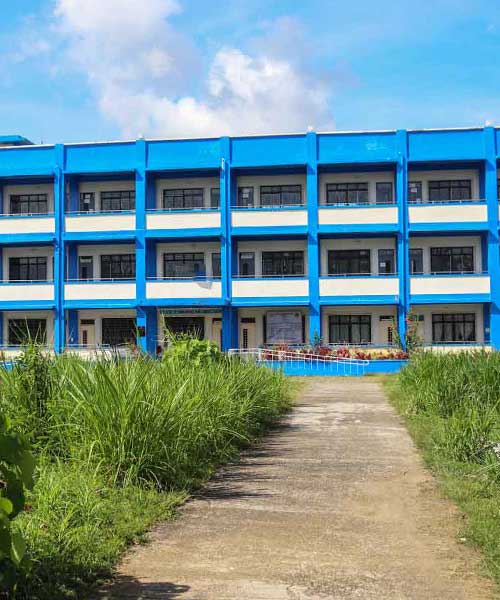
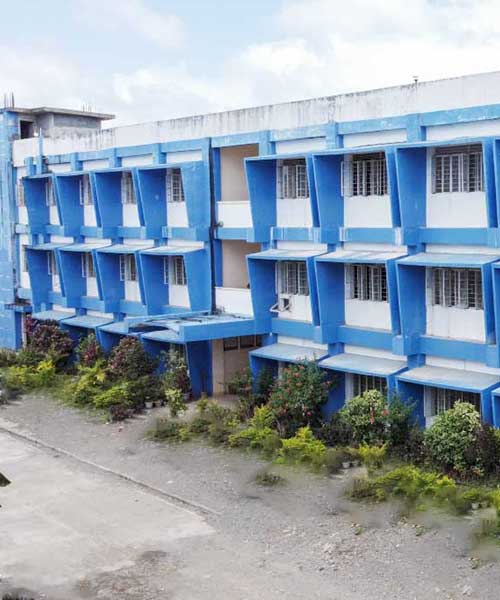

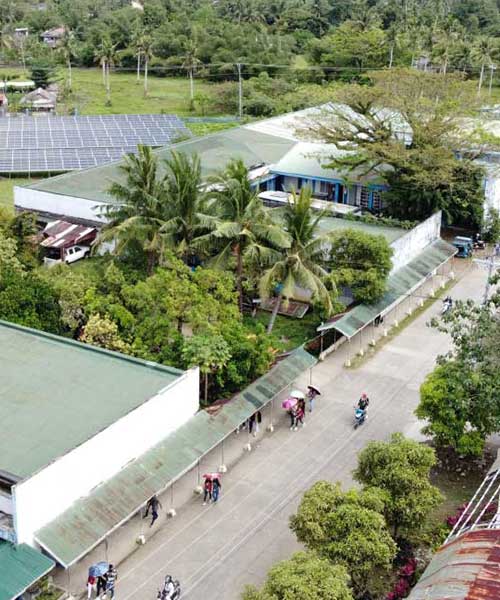
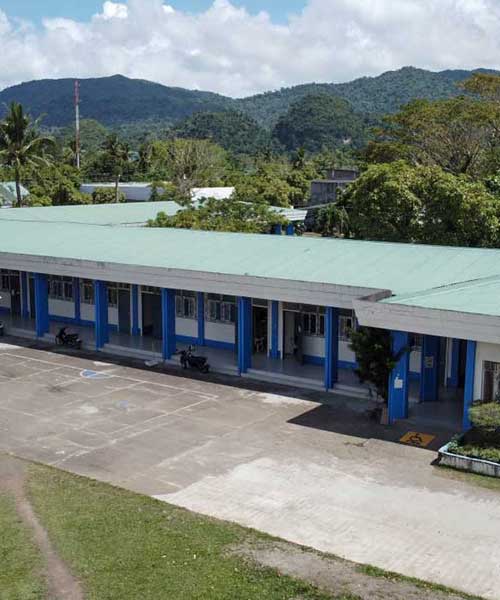


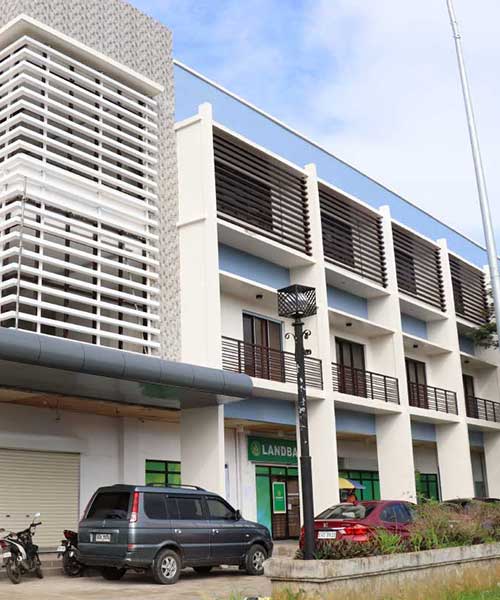

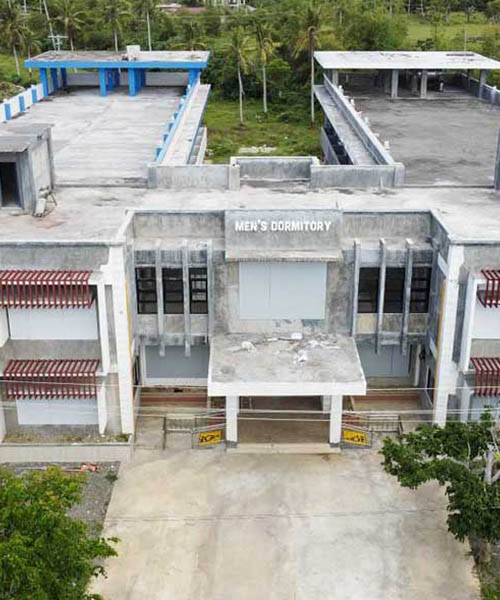
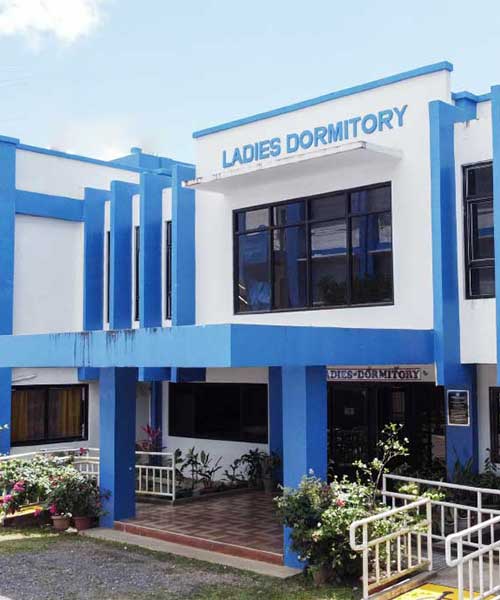
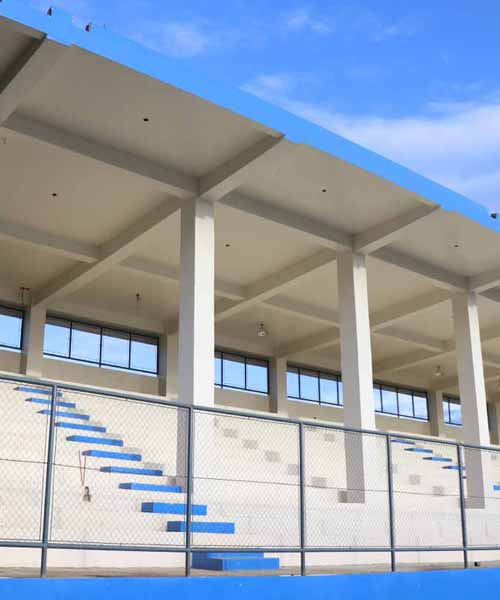





Honest service.
Outstanding and globally-competitive educational standards.
People-centered and planet-friendly programs where social safety nets are in place and harmony with the ecosystem is considered sacred. And above all, we shall provide for
Equal opportunity and fair treatment to all, where meritocracy, qualifications and potentials are given premium, instead of patronage and kinship relations.
By: Dr. Patrick Alain T. Azanza
SUC President III
“The University is the fruit of all the labors of every Catandunganon. The university is us”.
By: Dr. Patrick Alain T. Azanza
CatSU SUC President III